F1's most unwanted records: Ocon joins Hülkenberg on luckless list
Esteban Ocon joined an unfortunate list of F1 drivers who hold some of the series' most unwanted records as a result of bad luck, good sportsmanship and the downright bizarre
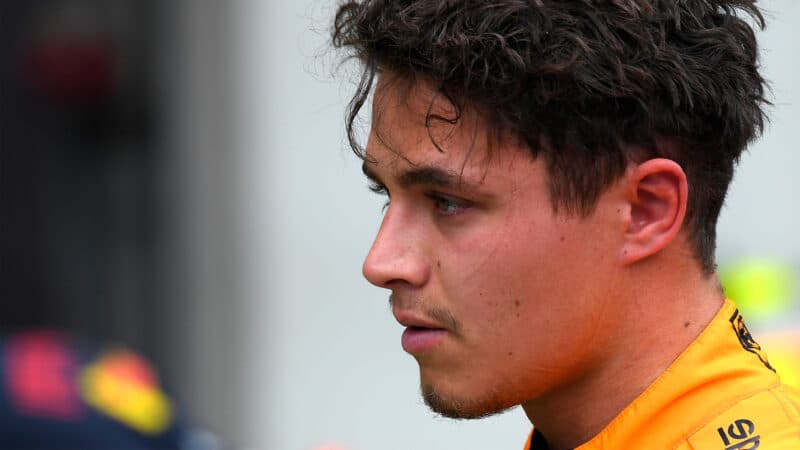
Grand Prix Photo
Following an action-packed race weekend in Miami, F1’s unwanted record books have undergone a significant shake-up.
Lando Norris — who was previously F1’s highest ever point scorer without a race victory — landed on the top step for the first time by way of a well-timed safety car and silenced a sea of neigh-sayers in the process. But while Lando’s new-found luck could only spur him on to further success, the same cannot be said for other drivers on the current grid.
Following the Briton’s debut win, evidence of Nico Hülkenberg’s career-long bad luck has resurfaced, with the German now occupying the top spot of two unwanted record lists: the most grand prix entries without a win (212) and the most points scored without a win (534). Kevin Magnussen also came close breaking Esteban Ocon’s record for the most penalties earned in a single grand prix (5), as he collided with Logan Sargeant and then pitted under safety car conditions without taking on tyres — accumulating three FIA penalty points in the process.
Unfortunately, Hülkenberg and Ocon are among a long list of drivers whose misfortunes are uniquely spectacular.
Most penalties earned in a single grand prix (5)
Esteban Ocon
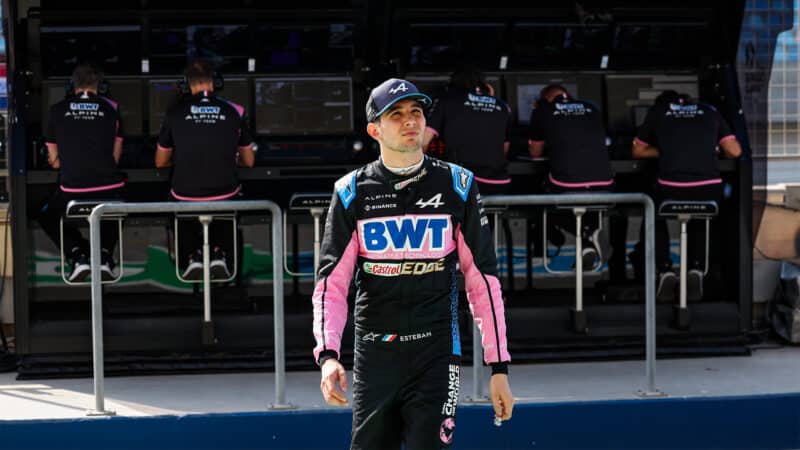
Ocon had an unfortunate start to his 2023 F1 campaign
DPPI
Esteban Ocon suffered more than most at the 2023 F1 season opener in Bahrain, with three penalties and a retirement before the chequered flag fell on a race he’ll be keen to forget. But the situation worsened for the Frenchman in Austria, as he was penalised on five separate occassions — a new and largely unwanted record.
Starting in 12th, Ocon exceeded track limits four times after being shown a black and white warning flag during the grand prix, resulting in 30 seconds worth of time penalties. Then following a routine pit-stop, he was given a further time penalty for an unsafe release.
The Frenchman’s nightmare weekend surpassed a previous record held by Pastor Maldonado since 2015 for the most penalties earned in a single grand prix. Maldonado had his own disaster at the Hungaroring, earning three time penalties for colliding with Sergio Perez, speeding in the pit-lane and overtaking under the safety car.
Most grands prix without a podium (212)
Nico Hülkenberg
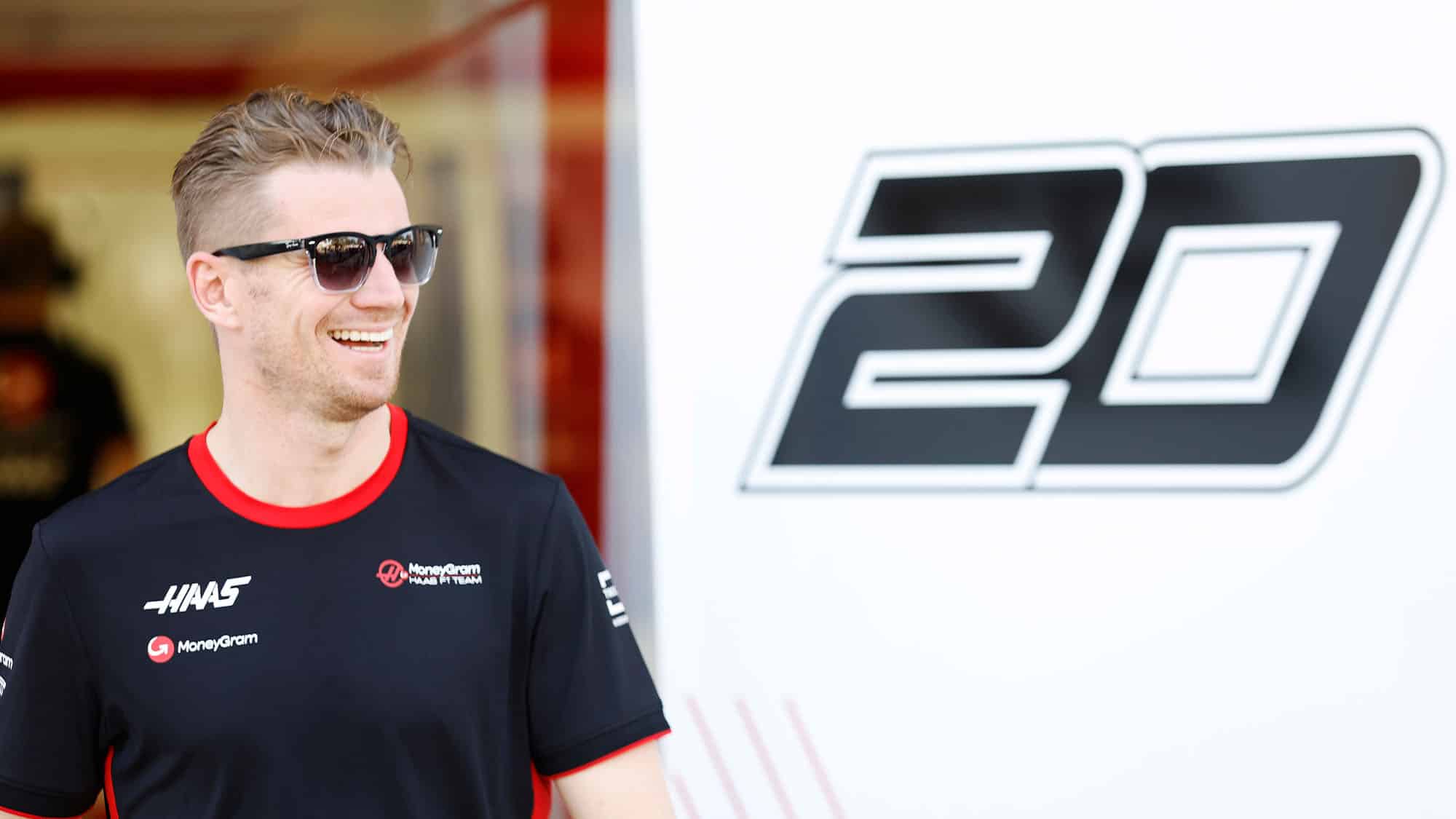
Hülkenberg is back on the grid full-time after three years on the sidelines
Haas
Entering F1 after an abundance of success in the junior ranks, Nico Hülkenberg was widely regarded as a potential world champion in waiting, a reputation he confirmed with a surprise pole position at the 2010 Brazilian Grand Prix during his rookie campaign for Williams.
But after a string of misfortune and critical driver errors, Hülkenberg has failed to achieve the minimum of what many expected of him in his 14 years of F1 experience – a podium finish.
The 2012 Brazilian Grand Prix, where Hulkenberg and Lewis Hamilton clashed while fighting for the lead, and his heartbreaking DNF at the 2019 German Grand Prix while running fourth is the closest Hülkenberg has come to showing his full potential.
But in 184 grand prix starts, Hülkenberg has only finished as high as fourth – a record that he will hope to rectify during his time with Haas in 2023 and beyond.
Fastest-given penalty in F1 (6sec)
Sebastian Vettel
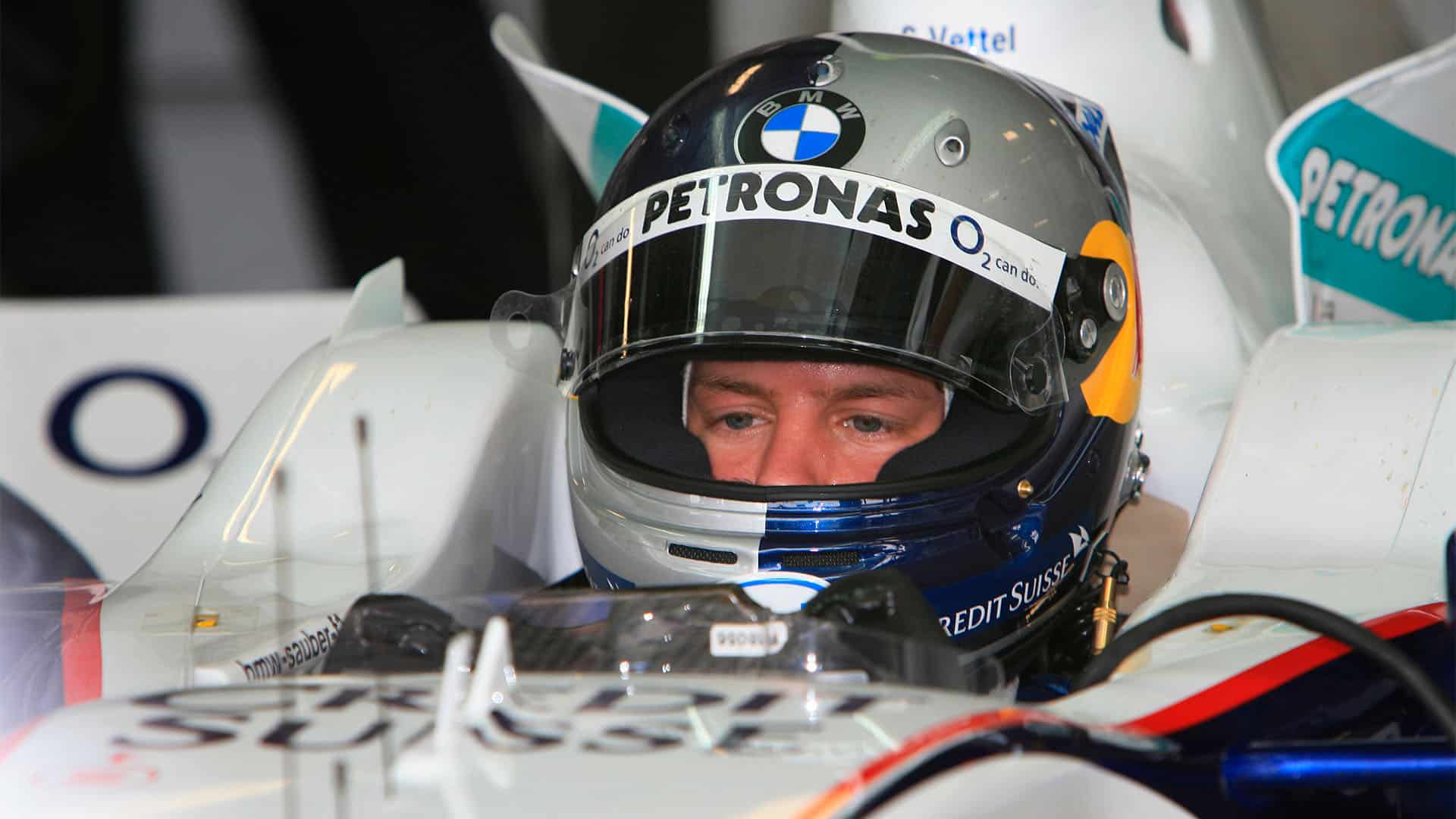
Sebastian Vettel during FP1 for the 2006 Italian Grand Prix
The record for the fastest given penalty in F1 history is a rare blemish on the career of Sebastian Vettel. Making his first free practice appearance for Sauber-BMW at the 2006 Turkish Grand Prix, Vettel was awarded a penalty for speeding in the pit-lane just six seconds into his F1 career.
Luckily his blunder was later overshadowed by his pace, finishing just two-tenths behind the seasoned Nick Heidfeld. His success as a third-driver earned him a race debut at the 2007 United States Grand Prix, finishing eighth, and raced for Toro Rosso for the remainder of the season.
Most podiums without a victory (13)
Nick Heidfeld
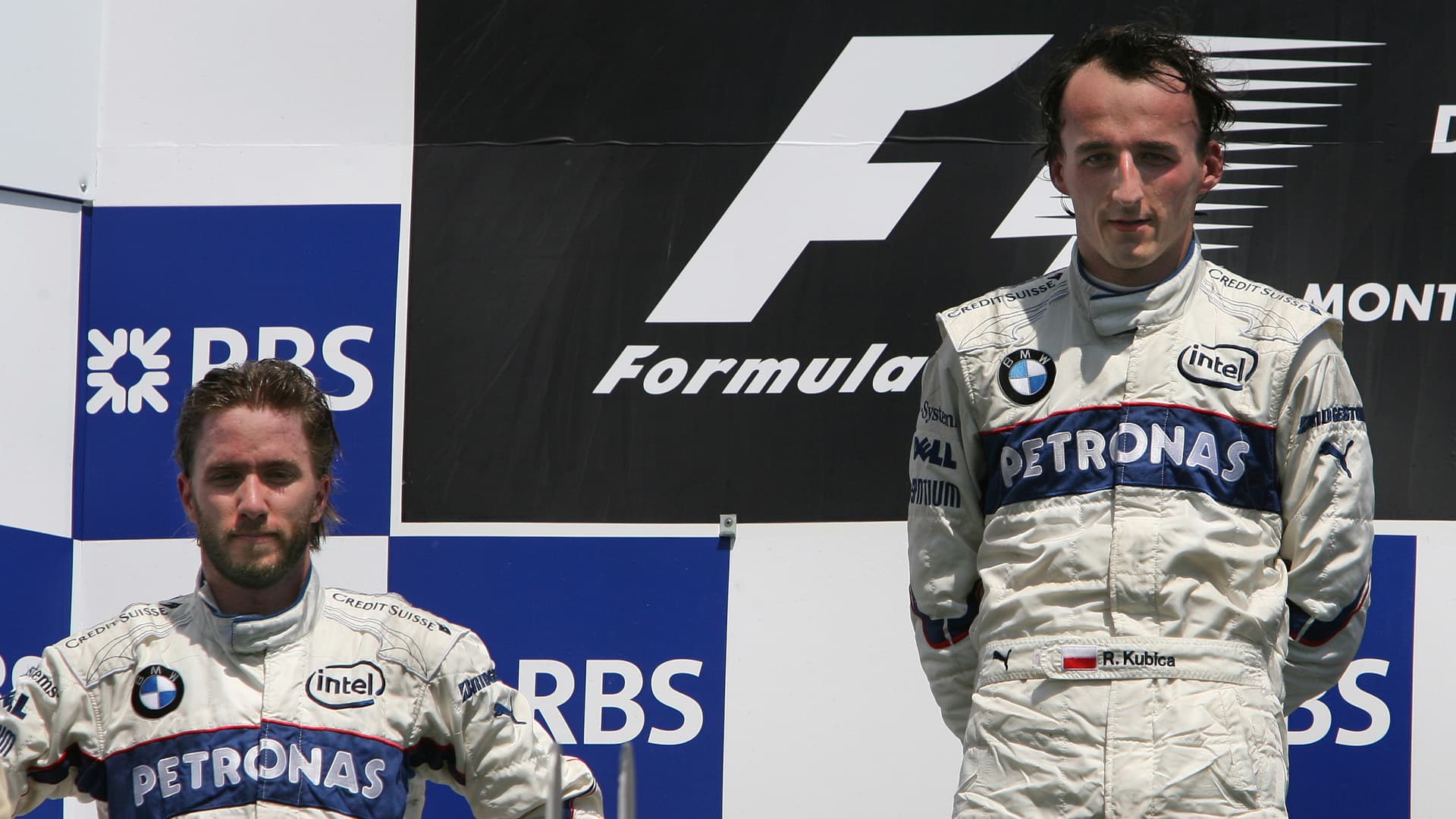
Nick Heidfeld second to Robert Kubica at the 2008 Canadian Grand Prix
Nick Heidfeld’s pace and consistency landed him on 13 F1 podiums in 183 grand prix starts, racing for the likes of Sauber, Williams, McLaren and Lotus, but he was unable to capture an elusive victory.
His greatest opportunity came at the 2008 Canadian Grand Prix, where he started eighth and climbed through the field to second – a distant runner-up to Sauber-BMW teammate Robert Kubica. The Polish driver had suffered a horrifying high speed crash at the Montreal circuit the year before, but bounced back in 2008 to qualify second and capture his only F1 victory.
Heidfeld finished second on seven other occasions.
Shortest distance raced over F1 career (2m)
Ernst Loof
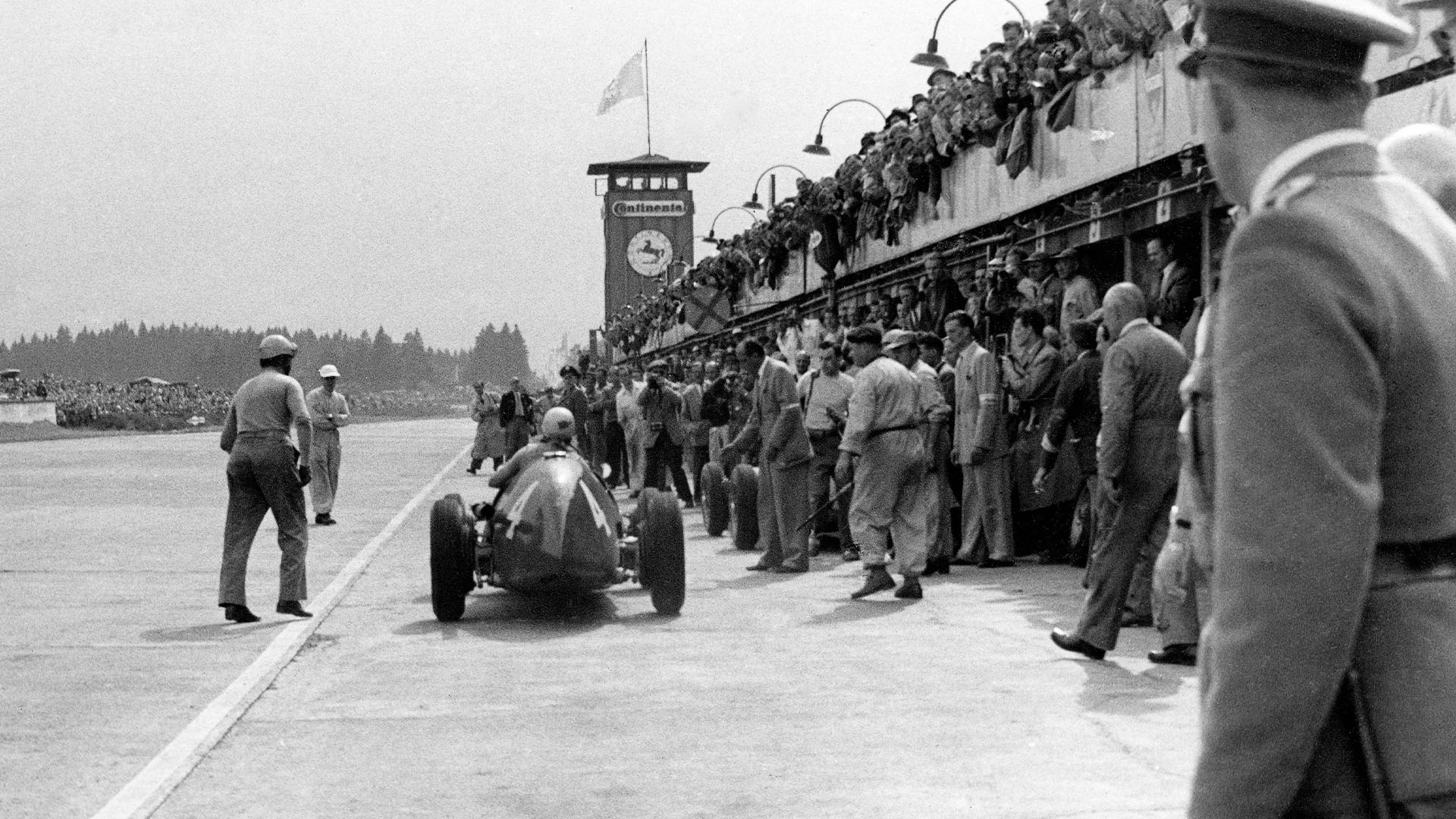
The 1953 German Grand Prix, Loof’s only race, eventually won by Ferrari’s Nino Farina
Qualifying 31st for the 1953 German Grand Prix, Ernst Loof was never in contention for a podium finish but he probably had higher hopes for an F1 career that lasted just two metres.
Racing for Veritas, a bankrupt constructor that only competed in six grands prix itself, Loof’s car spluttered to a halt with a broken fuel pump just six feet from its starting position, never to be raced again.
As its engineer and chief designer, Loof was understandably embarrassed by the failure but the team was later bought by BMW, who hired the German to work in styling and body engineering until he retired due to illness in 1956.
Least points scored against title-winning teammate (0)
Dave Walker
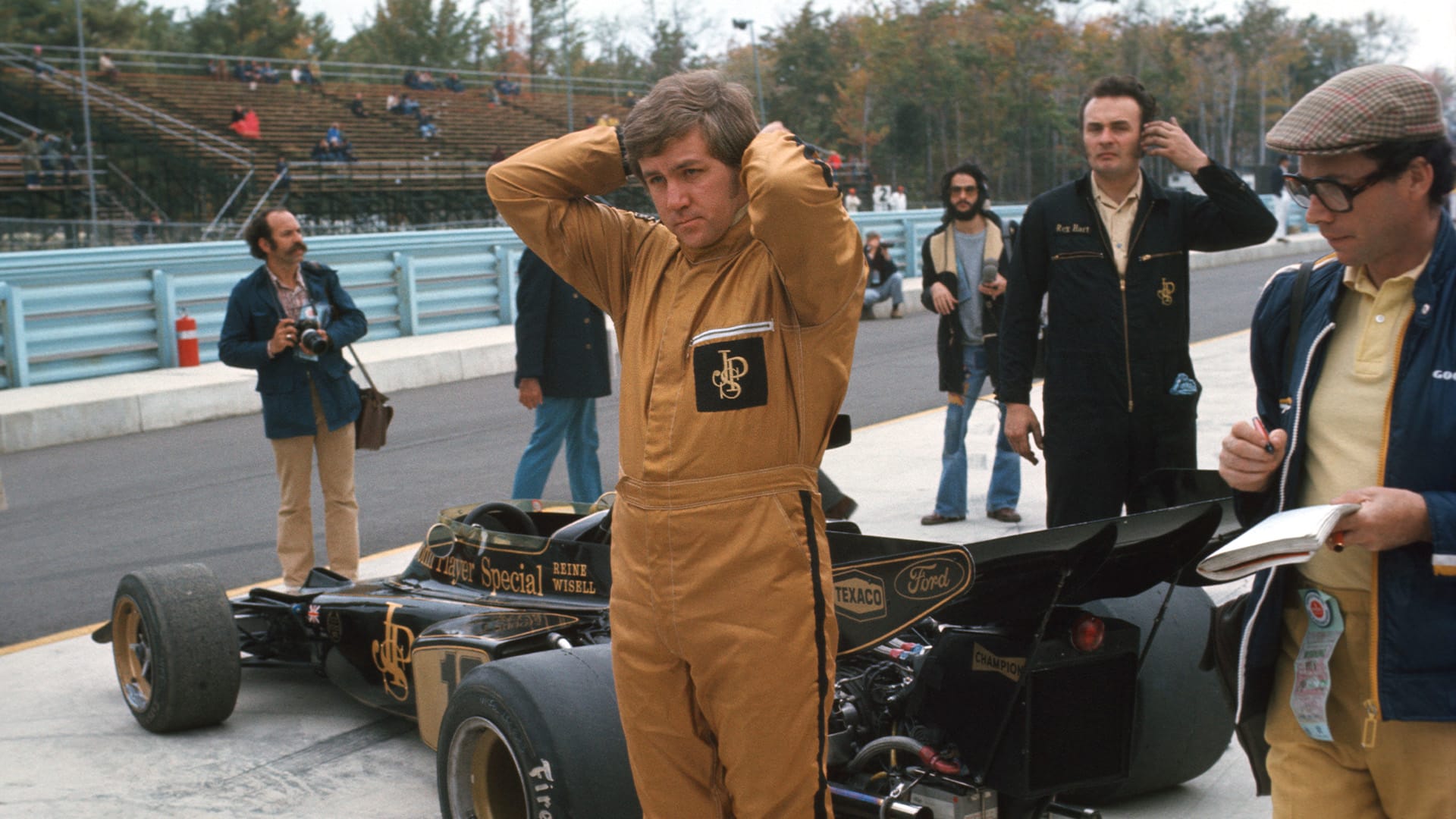
Dave Walker during practice for the 1972 United States Grand Prix
Dave Walker was given the opportunity of a lifetime when he found himself racing alongside Emerson Fittipaldi at Lotus in 1972 but ultimately faltered, failing to score a single point in 12 grand prix starts.
The Australian had impressed in Formula 3, dominating events against the likes of James Hunt, and winning 25 out of 32 races in 1971 before being promoted to a full-time F1 seat with Lotus in 1972. In a season to forget, Walker failed to finish higher than ninth whilst Fittipaldi went on to win five grand prix and claim his first world title.
Walker accused Lotus of giving him inadequate machinery and was replaced by Ronnie Peterson for 1973, never to race in F1 again.
Most second place finishes in F1 drivers’ standings without winning (4)
Stirling Moss
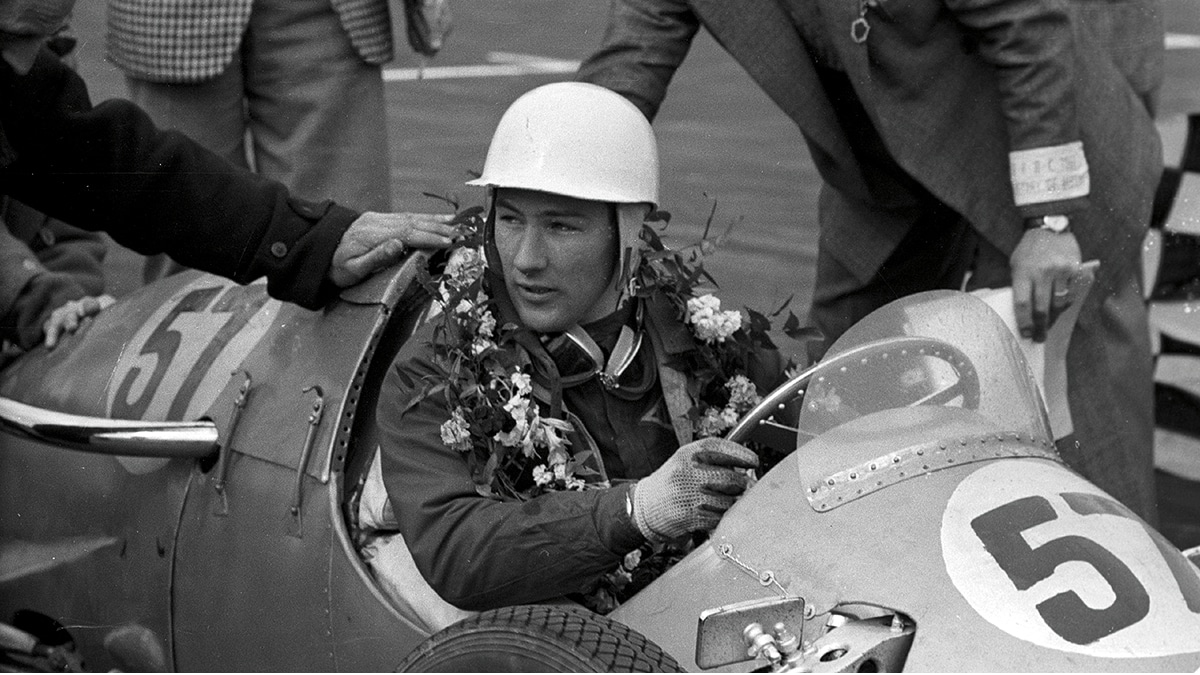
Moss adorned with the victory spoils after adding to his collection of F3 wins – first time out with a Kieft – at Goodwood in 1951
Widely regarded as F1’s most misfortunate legends, Stirling Moss finished second in the drivers’ standings on four successive occasions from 1955-1958 and was third from 1959-1961.
Achieving his F1 breakthrough with Maserati and Mercedes, Moss was unfortunate to find himself racing against the more experienced
Fangio’s retirement ahead of the 1958 season gave Moss his best chance at world title with Vanwall, but he was hindered with reliability. Despite winning four races in the 1958 campaign, including the season finale in Morocco, he was beaten to the title by Mike Hawthorn. The Ferrari clinching the championship by one point after winning only one race and avoiding disqualification in Porto thanks to Moss’s intervention.
Subsequent title winning attempts with Cooper and Lotus proved even more elusive, losing out to Jack Brabham in 1959 and 1961 and Phil Hill in 1962. Moss was later injured in a crash at Goodwood and retired from Formula 1 in 1962.
Only driver to DNQ, DNF and DSQ from one race
Hans Heyer
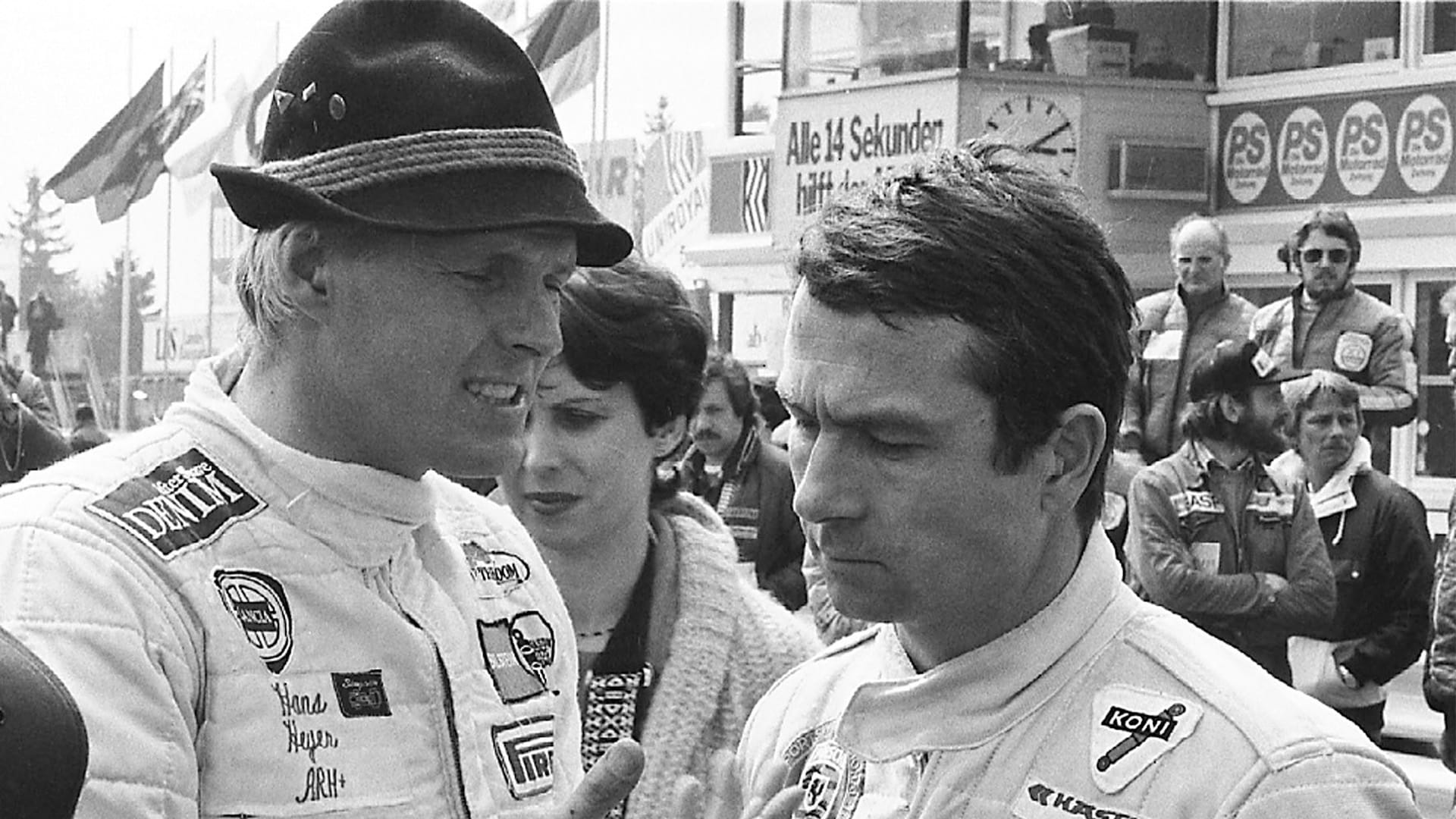
Hans Heyer (left) speaks with Bob Wolleck (right) at the Nurburgring
At the 1977 German Grand Prix, Hans Heyer entered as an experienced touring car driver, made famous by his Austrian Tirolerhut hat. In his one and only appearance in F1, he made an unprecedented mark.
Having failed to qualify by half a second, racing a hired ATS Penske PC4-Ford, Heyer was forced to watch from the sidelines as the race got underway – pole positioned occupied by Jody Scheckter. But with the support of some friendly German marshalls, Heyer’s Penske made its way out onto the circuit and joined the race, only to break down nine laps later with gear linkage failure.
Heyer was quickly disqualified from the event and was promptly banned from ever racing in F1 again, returning to sports car racing and even capturing three successive victories in the Spa 24 Hours from 1982 to 1984.
Most races without a win (208)
Andrea de Cesaris
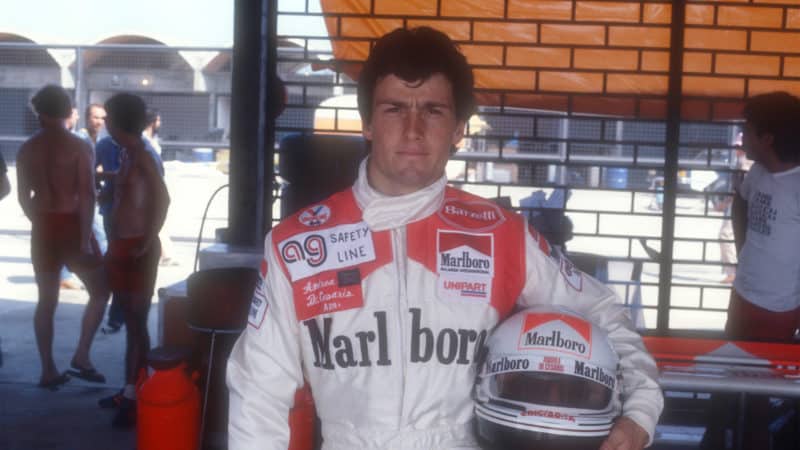
Andrea de Cesaris ahead of the 1981 Brazilian Grand Prix
In 208 grand prix starts, Andrea de Cesaris came tantalisingly close to the top step of an F1 podium on five occasions, but ultimately fell just short in an F1 career that spanned 15 seasons.
Despite making his full-time F1 debut with McLaren in 1981, it wasn’t until 1982 that de Casaris got his first taste of the podium and a chance at victory, classified third in a drama-filled Monaco Grand Prix. With just three-laps to go, Alain Prost crashed his Renault out of the lead on a rain-soaked circuit, Riccardo Patrese passing him only to spin and stall a lap later.
Ferrari’s Didier Pironi then took control of the race but ran out of fuel on the final lap, allowing Patrese to repass him and claim his first grand prix victory. De Casaris himself had also broken down on the final lap, but the lack of finishing cars meant he inherited third behind Pironi.
More chances at victory would come in 1983, where De Cesaris would finish second in Germany and South Africa, but eventually retired in 1994 without a race victory.
